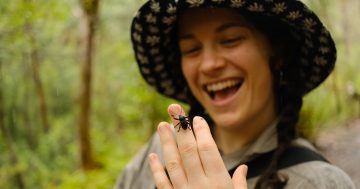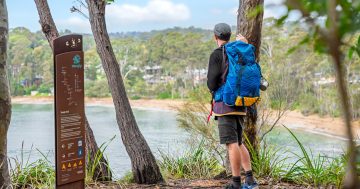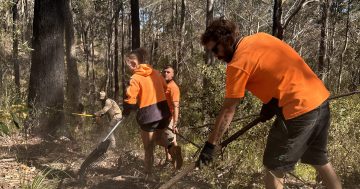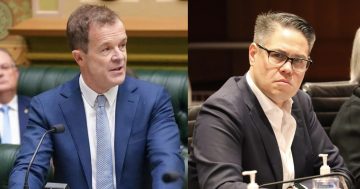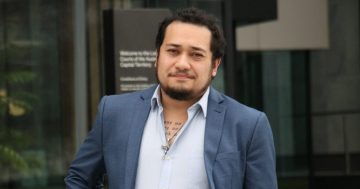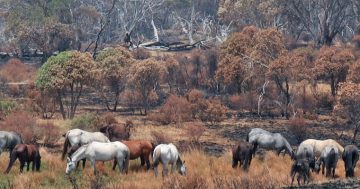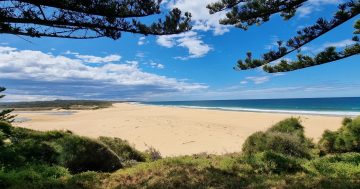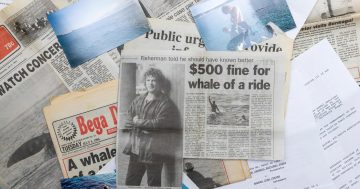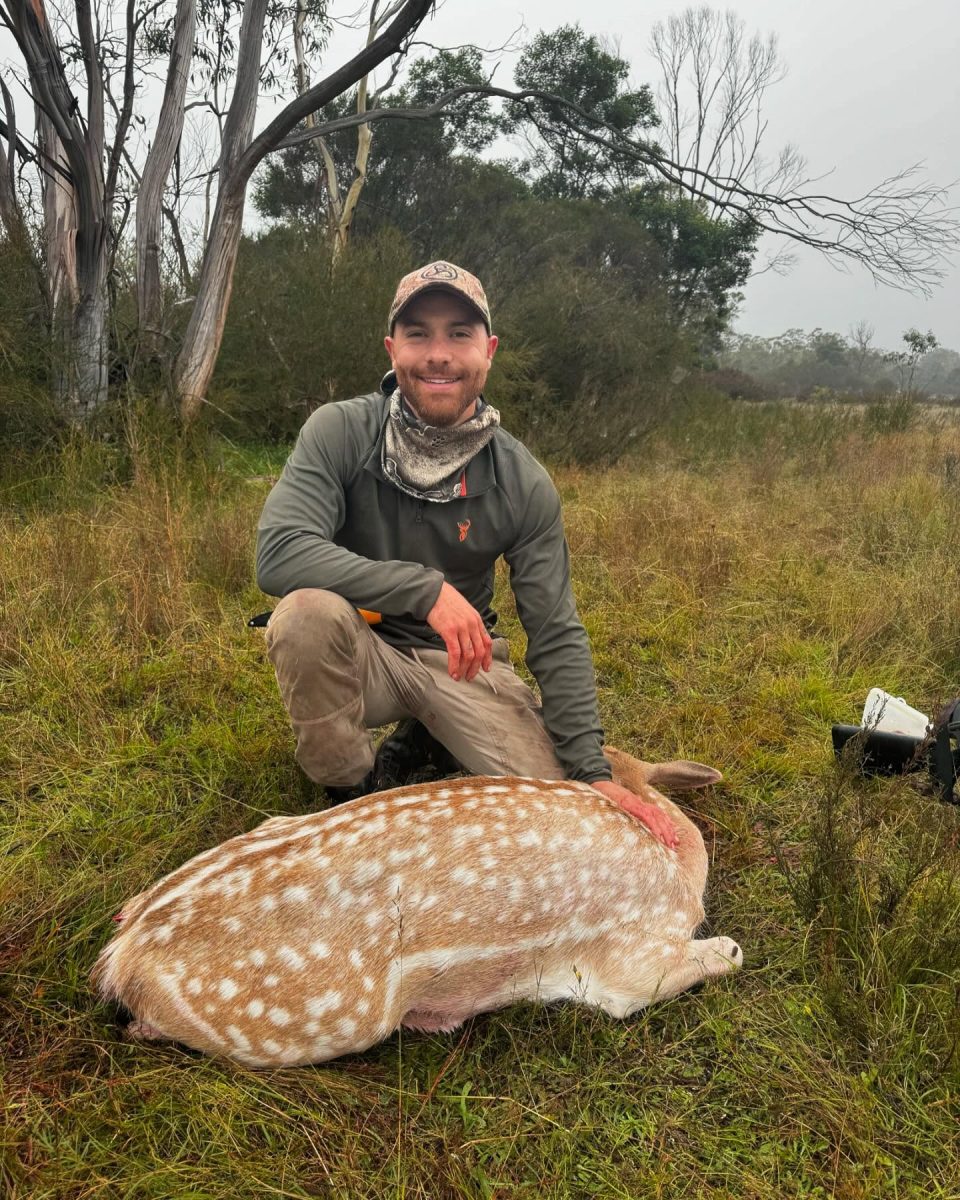
Andrew Joulianou hasn’t been to the butcher in five years – and he’s not a vegetarian. Photo: Thebaldchefau/Facebook.
CONTENT WARNING: This story contains images that some readers may find distressing.
Rather than heading to the shops when he runs low on meat, sparky Andrew Joulianou heads into the bush.
There, he hunts invasive species like deer, pigs and goats, and brings the carcasses to feed his family.
He says it’s an alternative to mainstream butchers and supermarkets, and he can make sure the entire animal is used.
“They’re getting slaughtered in an abattoir in unethical ways,” he says.
“I did feel bad [when he was younger], but looking back, I think it should be a normal thing to hunt.”
Andrew grew up in southwest Sydney, where he and family members would hunt small game (think animals like rabbits, ducks and quail).
He says the tradition started after his grandfather emigrated from Cyprus. While he was growing up, his grandfather and father taught him to hunt.
“I saw [that] from a young age and knew that I was around killing and harvesting and eating animals from a very young age,” he says.
“I was very desensitised to it because it was just so normal … [Other schoolkids] would say, ‘Oh, do you feel bad for the rabbits?’
“That’s when I started to think maybe I am, and I did start to feel a bit sad for them. But now, looking back, that’s not really a valid comment because at the end of the day, everyone’s eating meat.”
After moving to the NSW South Coast several years ago, he hunts mostly in the nearby Southern Tablelands region.
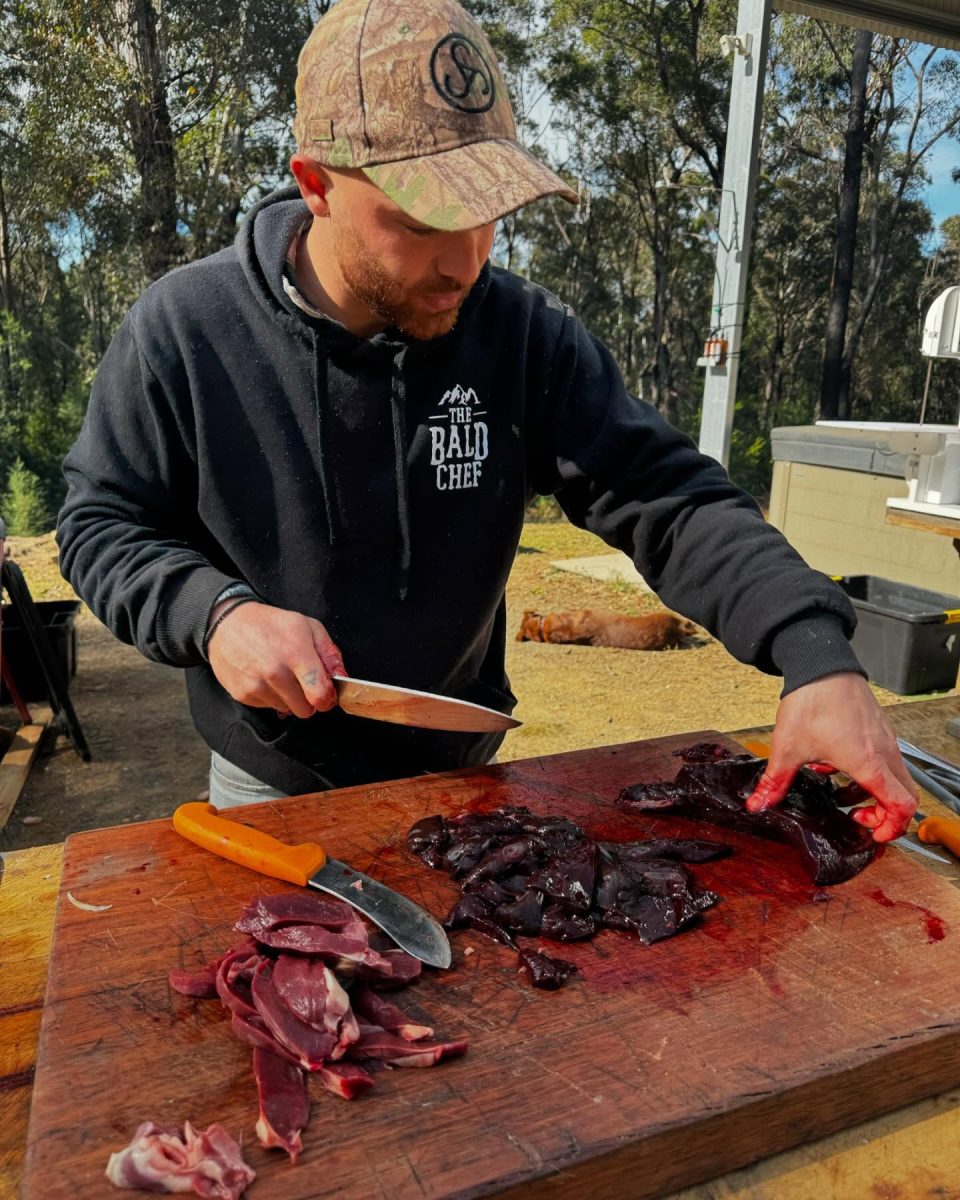
Hunting is a family affair for Andrew, who is also teaching his daughter the skill. Photos: Thebaldchefau/Facebook.
Andrew hunts mainly on private land, with owners inviting him onto their properties after hearing of him through word of mouth.
He takes his backpack, filled with supplies and gear – a knife, binoculars, range finder, lighter (to check the wind’s direction), and his weapon.
“Depending on the farm, you have to walk in,” he says.
“There’s properties where you might have to walk two kilometres to get to the spot where you want to hunt.”
It’s a quiet, careful wait until his animal comes near. Then, it’s a matter of carrying it to the car or skinning the animal and dividing it up into game bags.
Andrew says focusing on invasive species, which he sees as a “resource”, is a sustainable hunting method.
“You hear on the news they’re shooting a lot of these animals, culling them from helicopters for the environment and stuff like that,” he says.
“They damage the environment, but at the same time, it’s food and it’s abundant. I’m making the most of the scenario I’ve been put in.”
Andrew also organises classes and posts on social media to share information and resources around hunting, especially of invasive species.
“Gun shops and hunting stores always focus on guns and ammo and hunting gear … all these different gadgets for hunting,” he says.
“There hasn’t been much push or drive towards what to do [with an animal].”
He wants to combat what he sees as a lack of knowledge about the “good food to eat” that comes from the whole of an animal.
He says the classes, which he has held in Goulburn and Batemans Bay over the past four years, are a chance for people to learn about meat cuts they were not aware of.
“At the end of the day, we’re not just hunters. We’re butchers and we’re cooks,” he says.
“You have to learn how to skin, butcher and cook it [the meat] … You need to work with this cut of meat.”
You can keep up with Andrew via his Facebook page.







